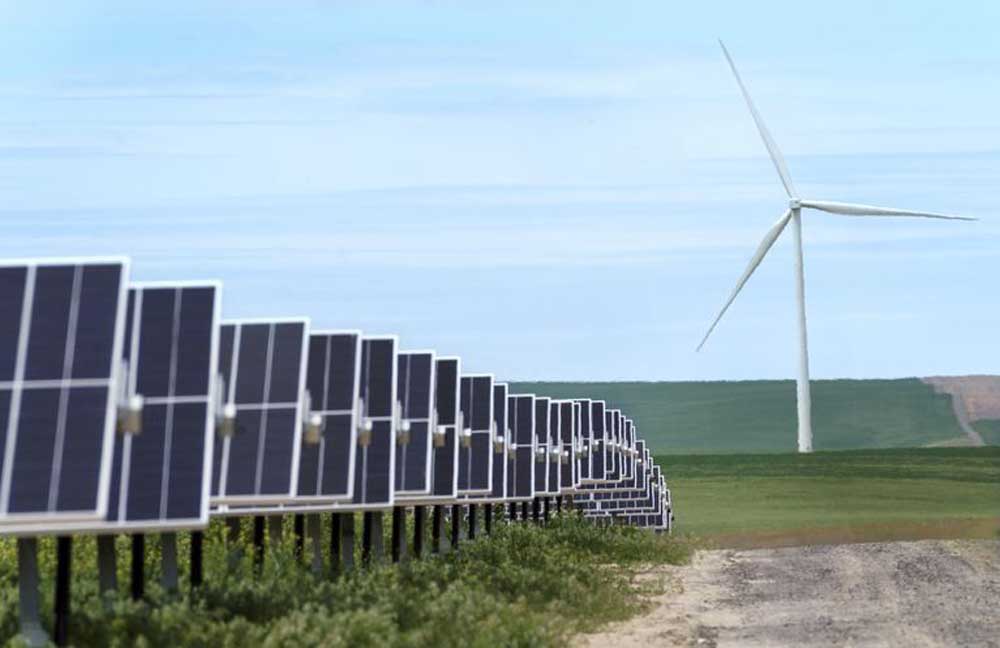Reduce, reuse, recycle: What happens when items make it into a landfill?
Published 6:00 am Wednesday, February 24, 2021

- Ferré
Exciting news: The recycling center will now be able to accept rigid plastic six-pack holders in a special blue bin outside the plastics section. Be sure to place six-pack holders in the blue bin, not with the other plastics.
So, what happens to all the things that are dumped in a landfill because they were not reduced, reused or recycled?
The waste we each create does not somehow magically disappear when Rahn picks up our garbage cans or we dump our bins at Ant Flat. What really happens to all that “stuff” that we are throwing away? Well, here are a few simple facts that pertain to landfills like the one we have here in Wallowa County.
As bacteria break down the organic waste in our landfill, noxious gases are created.
Ninety to 98% of landfill gases that seep through the soil into our air are methane and carbon dioxide.
The remaining 2-10% of the leached gases includes nitrogen, ammonia, sulfides, hydrogen and various other gases.
The production of these gases peaks 5-7 years after the materials are deposited, but a landfill can continue to produce noxious gases for more than 50 years.
According to the EPA, the methane produced by rotting organic matter in landfills is 20 times more powerful at trapping heat from the sun (the cause of greenhouse gas and climate change) than carbon dioxide.
Landfills produce 25% of all the methane gas linked to human activity.
Household cleaning products and e-waste that are deposited in landfills can produce toxic gases that can significantly impact air quality in the vicinity of the landfill.
As rainwater filters through the materials in a landfill a “garbage soup” is created.
“Garbage soup” is a term used to describe the highly toxic liquid formed when water from rain, snow melt, etc. filters through the waste as it breaks down in the landfill. This “garbage soup” can pollute the land, groundwater and waterways, presenting a current and future threat to the quality of groundwater.
The toxicity of this “garbage soup” can be dramatic.
Although many landfills are now constructed with liners and leachate collection systems, historically many landfills were constructed without these systems.
It is widely recognized that even the best-installed plastic landfill liners will succumb to deterioration over time and will eventually allow these toxic liquids to be released.
You might ask, “Why all this negative information about landfills if they are such a common part of our lives?” Well, landfills with the toxicity levels of our current ones have not always been a part of our life, and they are having an unseen impact on our lives. Maybe if we join hands and aggressively ramp up our reducing, reusing and recycling efforts, landfills — and their potentially harmful effects — can be reduced and perhaps even eliminated.
Dealing with the solid waste (much of which is compostable, reusable or recyclable) that we each create is a big job, and the Friends of Wallowa County Recycling and the county’s Solid Waste Team need your help, and the help of your friends and family members.
Send us an email at friendsofwallowacountyrecylcing@gmail.com if you have an interest, and some time, to help with one of the objectives listed below, or you have ideas for other ways we all can lessen the waste we generate and improve the processing of the waste we do generate. Any amount of time you can share will be greatly appreciated.
The following are just a few of the objectives we are working on, and could use your help with:
• Reduce, reuse, recycle everything you can.
Helping transport materials:
• The plastic six-pack holders will need to be brought to Portland.
• We would like to begin collecting baling twine again that will need to be transported to the west side.
• To help lower costs we will be looking for volunteers willing to haul bales of recyclables to Hermiston, Spokane and other locations.
• Volunteering time at the recycle center helping sort materials, clean up, etc.
• Spring cleaning at the recycle center on Earth Day (April 22, 2021).
• Helping with our school and community education program.
• Help with implementation of $38,000 recycling grant the county received.
• Fundraising to help us raise money for a storage shed, for modernized equipment to help us process more materials (a local citizen has committed $25,000 of matching funds to the recycling program, so we need to find those matching funds).
• Help collect recyclables at county events when they resume.
Thank you for the difference you are making and for helping continue to expand that difference.








